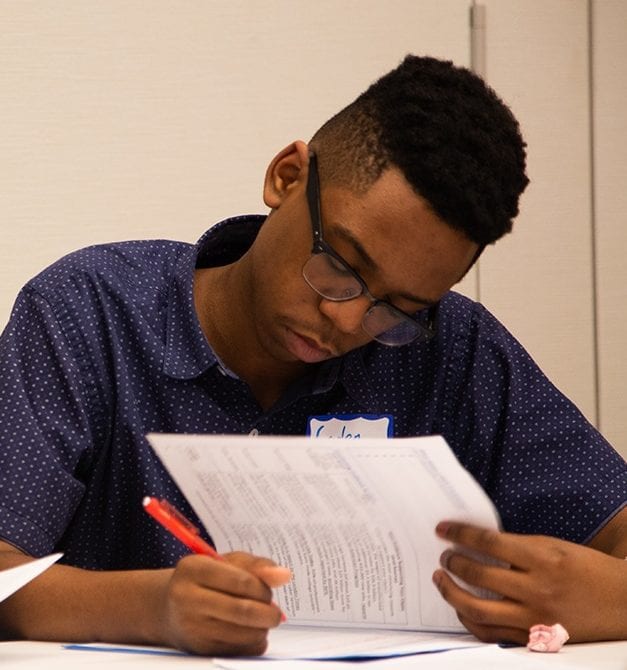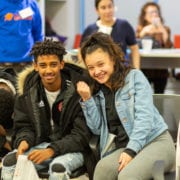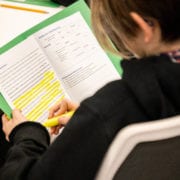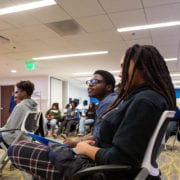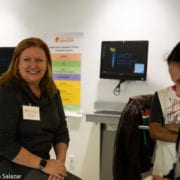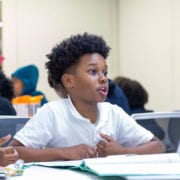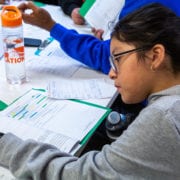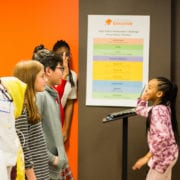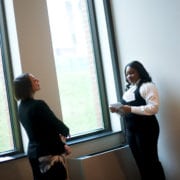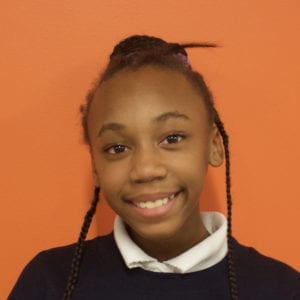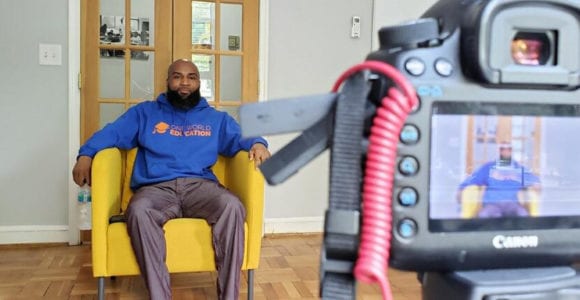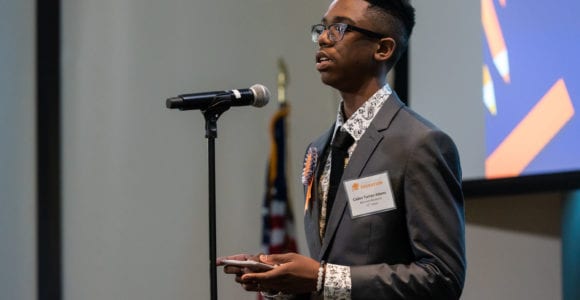How Does It Work?
The One World Academy is an eight-week, after-school program that prepares a select group of 75 students for the public showcasing of their work. Students transform their stellar argumentative essays, developed during One World’s in-school programming, into compelling oral presentations. Students learn to:
- Present evidence to support their claim;
- Organize their talking points in a logical manner;
- Speak with eye contact, good posture, and confidence.
Volunteer mentors work with students individually and in small groups, helping them to overcome fears of speaking to large audiences. Students practice their presentations with their mentors and at home to prepare to speak in front of 300 community leaders, educators, and family members.
